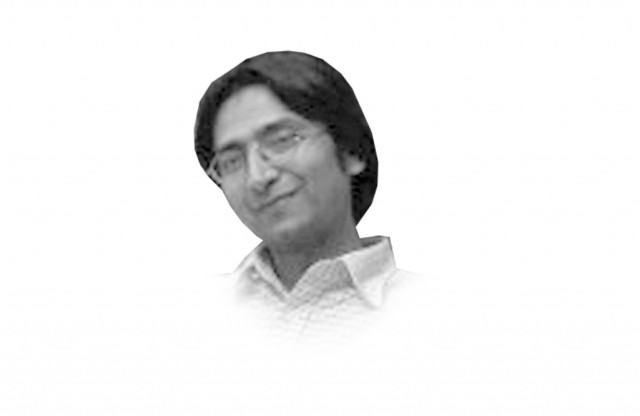Not a tantrum, sir
Asma Jahangir’s criticism must be understood in the political context that she is referring to.

My learned friend has in the past held, and rightly so, that the superior courts should not have interfered in matters like sugar prices or the privatisation of the Pakistan Steel Mills because areas of policy and economics fall outside the courts’ jurisdiction. However, our courts have not stopped coming into spheres exclusively and constitutionally reserved for the executive and parliament. Should we then infer that since the line between courts’ jurisdiction and other branches of government has become blurred, there is no point in urging them to stay within their constitutional limits?
Like economic matters, matters of national security are also beyond the court’s purview. What Jahangir found fault with was how the court appeared to have found a link between supposed national security on the basis of a questionable and dubious memo and right to life, dignity and information, and how this precedent is liable to be misused in future, to the detriment of a common citizen of this country. Mr Naqvi’s other major point is regarding the composition and the scope of the commission’s work. Jahangir’s contention is that the arguments in the court thus far were confined to the admissibility or maintainability of the petitions (she was time and again stopped by the court and asked to argue only on maintainability). No arguments on merits took place; therefore, no argument was made on the composition and the scope of probe by a commission to be appointed by the SC, if it had to come to that at all. Therefore, the order, should have been confined to the question of maintainability alone.
The writer, like other legal minds, agrees that the commission appointed by the SC cannot determine the authenticity of the memo. Further, the commission is definitely not going to render a binding finding in order to enable the Court to enforce any fundamental rights. Will an inquiry rendered by three sitting chief justices of high courts leave any room for a trial court to reach a different conclusion? In her arguments she also drew the court’s attention towards the fact that the matter was one which essentially belonged to the political sphere which excluded the SC’s jurisdiction. In proceeding with the petitions, she said the court would show lack of trust in other branches of government, i.e. the executive and parliament. While disagreeing with the SC’s decision in Steel Mills case, Naqvi, too, has in the past forcefully argued in one of his articles that the judges cannot separate their legitimacy from that of other branches of the state.
Jahangir’s contention regarding impeachment was that even if it was conceded that the memo could form a basis for any proceedings, it had to be by parliament alone. At worst, it could lead to impeachment proceedings in which case the Court’s jurisdiction was precluded.
Jahangir is not alone in voicing her disappointment and dissent over the court’s order. Several members of the Bar have expressed dismay in bar rooms across the country (though these members may not have the courage to say it publicly). Even a lawyer like Khalid Anwer, who would otherwise stay away from such controversies, has had to voice his concern.
Asma Jahangir’s criticism must be understood in the political context that she is referring to — the consequences of the court’s order are not difficult to see within the context of the civil-military imbalance.
Published in The Express Tribune, January 6th, 2012.













COMMENTS
Comments are moderated and generally will be posted if they are on-topic and not abusive.
For more information, please see our Comments FAQ